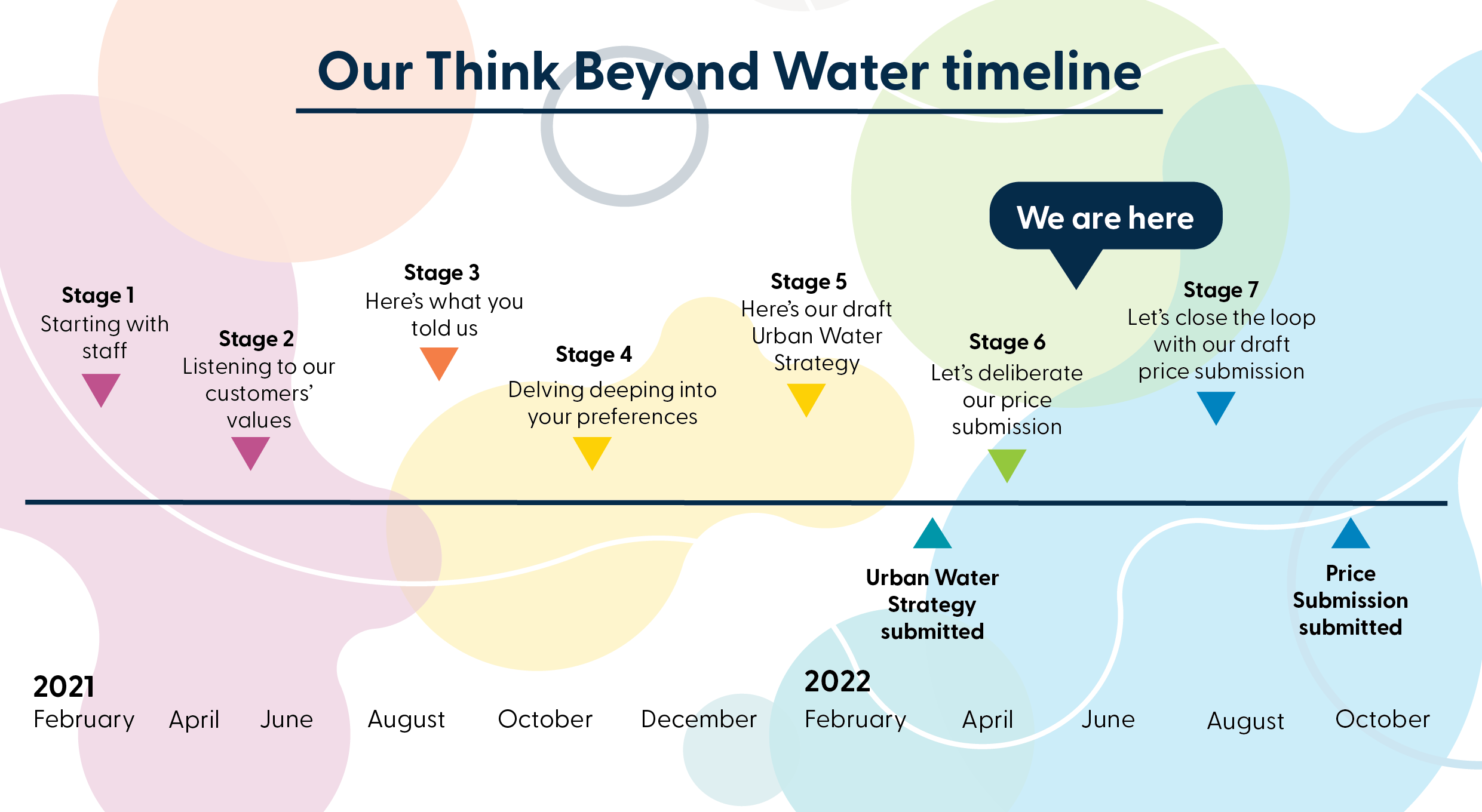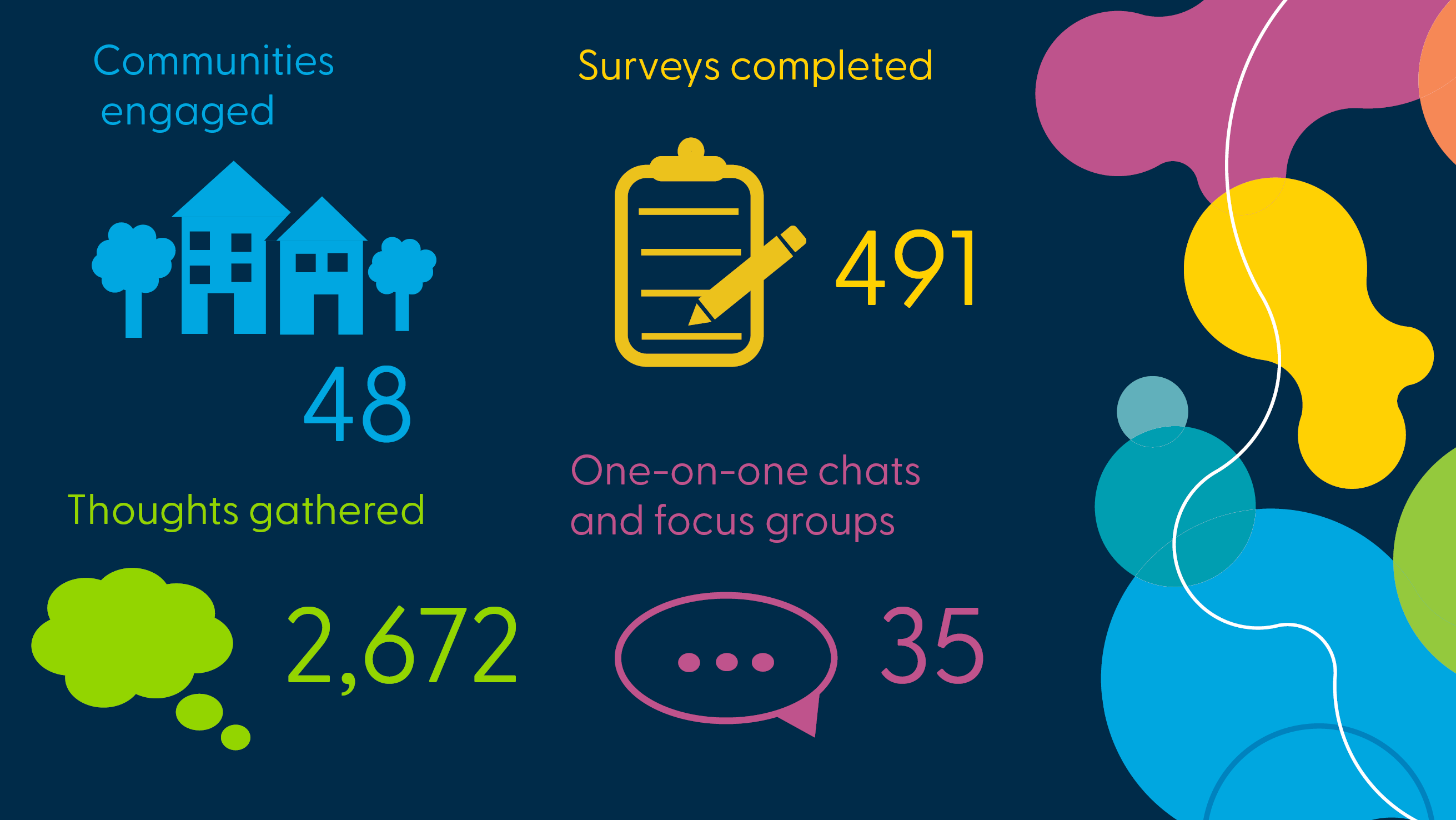A snapshot of what our customers have told us:
"I would like you to promote drinking town water rather than the public buying bottled water. Research seems to suggest town water is better. We do not need plastic bottles littering our streets. I think how many plastic bottles would be used in 12 months if an individual drank only bottled water!"
"It would be good to have recycled water reticulated through the town so that gardens can use lower quality water."
"Solar powering of the processing of water is already of great benefit."
"Keep up the great work that they are doing now."
"I think everyone should play a part in looking after the region and making it better. We all need to deal with climate change but we also need to look after people who are in trouble & need support."
"I expect Goulburn Valley Water to supply water of good quality and as we are a country of regular droughts, to impose restrictions where necessary."
"[I expect] Good drinking water and plenty of it."
"[I expect] Clean water, good pressure and personalised customer service."
What's happened so far?

Phase 1
We began with conversations with our staff to understand what they think is important - after all, most of them are GVW customers as well! We've used their feedback to help inform early planning for the business as well as our pricing submission.
Between March and July, we engaged widely with our communities to understand people's broad values and opinions about future services and pricing. Where we could, we met with people face-to-face depending on restrictions or lockdowns, as well as inviting people to take a survey online, via a physical postcard we dropped at cafes and businesses in each town, or via a QR code on water bottles at cafes across our service area, or via an SMS link. We recieved a fantastic response - so thank you to those who shared their thoughts.
Phase 2
We analysed the feedback to give us some key topics to delve into further with our communities as part of our second phase of engagement. We asked people to share their preferences for additional investment on six topics identified through our first stage of engagement, such as regional leadership, carbon abatement options, support for vulnerable customers and investment in digital technologies, via our bill-a-bill tool. It showed how selecting different levels of investment impacted on bills for customer groups over one year and for the full five-year pricing period. Not all aspects of our pricing submission were represented in the tool - just a couple we are keen to know more about.
Phase 3
We further explored some key topics identified through the previous stage's build-a-bill process. We brought together a group of diverse customers that were representative of our customer base and asked them to deliberate on several themes carefully and in detail over a number of sessions, spread out over a couple of weeks. These explored bill impacts of different levels of service and projects, and we asked customers to provide advice on some decisions for our draft pricing submission, based on their deliberations.
Phase 4
We fed outcomes and customer feedback from the deliberative forum into our draft Pricing Submission. A draft was released for public consultation, before it was sent to our regulator, the Essential Services Commission in spring. They analysed it and consulted further with customers on our draft plan and their recommendations. The subsequent Price Plan 2023-28 will come into effect on July 1, 2023.
A snapshot of our first stage engagement
